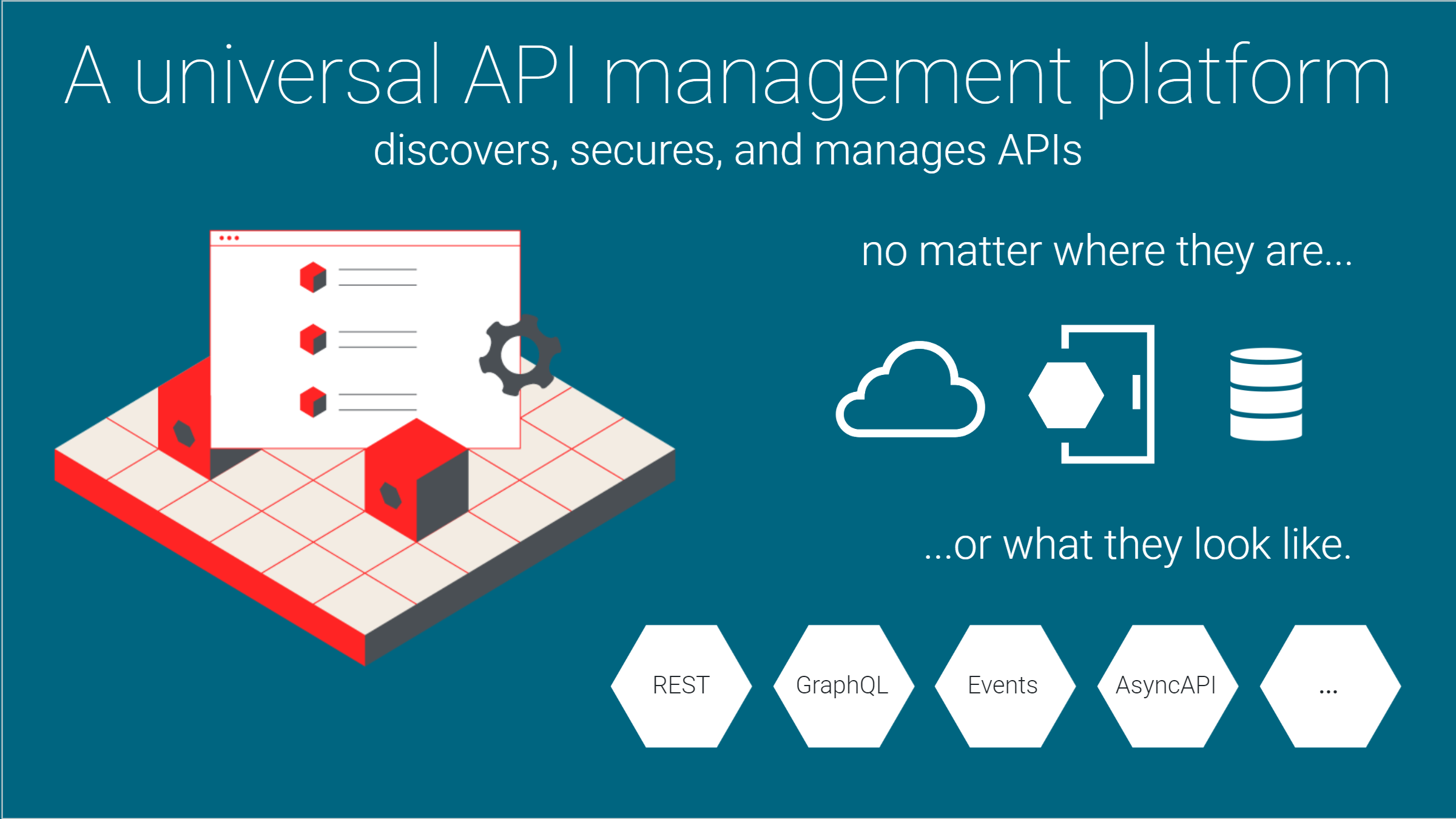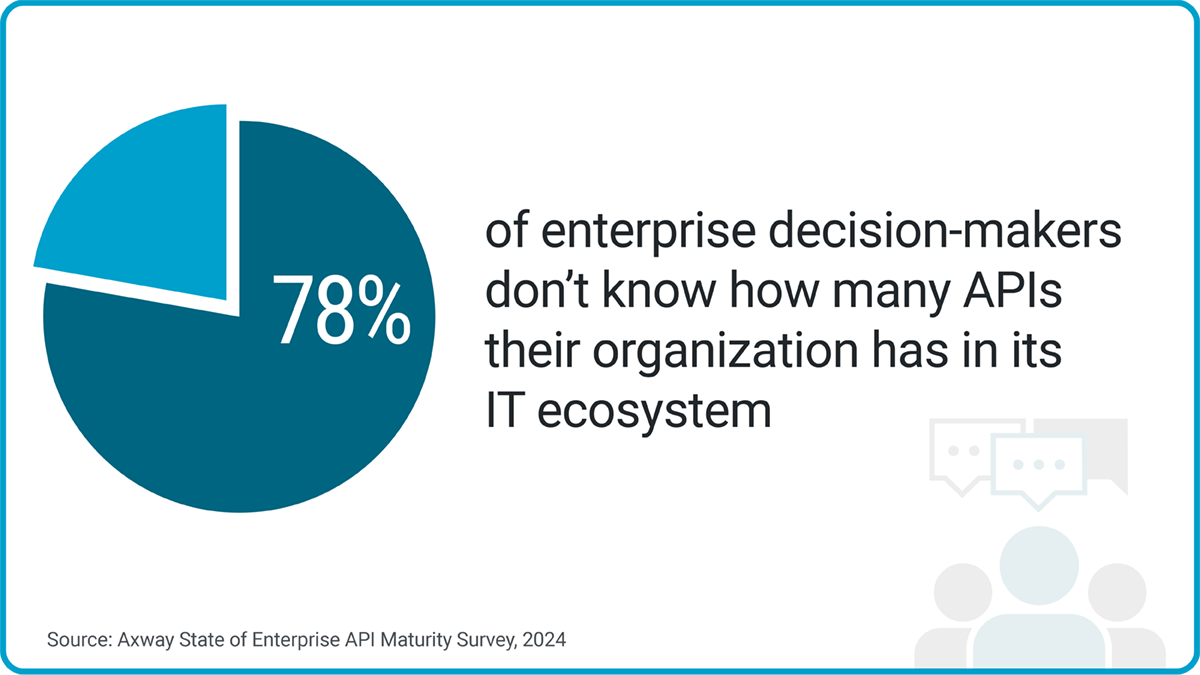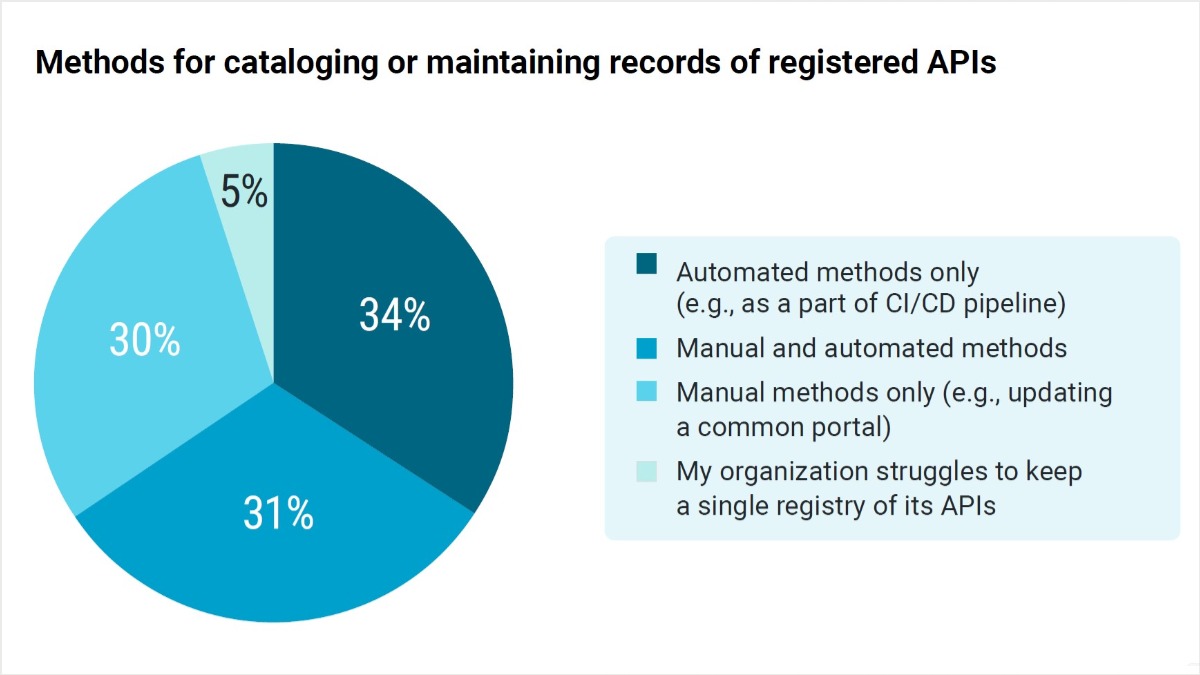Federated API management is an emerging term that characterizes an expanded set of capabilities beyond traditional API management. (It’s also sometimes referred to as universal API management, or distributed API management.)
The first is the ability to extend API management to multiple vendors gateways, deployment patterns, and repositories (sometimes known as “federated API management”). The second is the ability to handle additional API patterns beyond basic SOAP and REST. This includes GraphQL, Events, Service Mesh, gRPC, and AsyncAPI to list a few.
Simply put, a truly universal API management platform is one that offers visibility and control over APIs wherever they are, and whatever form they make take.
In this article, you’ll learn more about who stands to benefit from these improved capabilities, how federated APIM works (and why an open approach is better), and the trends driving the need for federated API management.
How does federated API management work?
There are several approaches to accomplishing federated API management. Axway’s Amplify Platform uses lightweight, non-obtrusive agents to interface to all of your diverse API data planes (Axway, AWS, Azure, Apigee, Mulesoft …).
The agents do not sit in the data path (unlike the proxy approach used by some vendors which can drive up cost, latency, and deployment time) and allow common discovery, observability, and subscription.
Dive deeper into how Amplify Agents work to bring federated API management to life.
A truly open approach to federated API management means multi-cloud, multi-protocol, and multi-gateway support, which also offers freedom from vendor lock-in.

What is driving the trend toward federated API management platforms?
API evangelist Kin Lane first talked about an API Economy nearly 13 years ago, but it’s still just as relevant – if not more – today. Every industry stands to benefit from the use of APIs that drive new forms of business; after all, APIs aren’t just for tech companies. But this proliferation and continuous evolution of API technology has ushered in a challenging new era of API complexity.
1. Sprawling business units building their own APIs
Developers need the flexibility and independence to innovate with the tools that work for them. But when business units are developing APIs independently of each other, you start to see silos that lead to fragmented CX, time-consuming management, and automation and standardization headaches.
Arun Dorairajan, Director of Solutions Architecture at Axway, shares what this modern landscape tends to look like in the following clip.
API sprawl can also lead to significant duplication of resources. Two different teams might build the same API without knowing there is already one available that would serve their purposes. We’ve found that companies stand to save nearly $30K on average every time they reuse an API.
2. Multiple API gateways from multiple vendors
The average enterprise these days uses 3-4 different API management vendors – up to 5 in some cases. They often do this for good reason, wishing to differentiate between external vs. internal traffic, or on-premises vs. cloud deployment, or to manage different functionalities.
It becomes a problem when this complexity starts holding a company back.
Not having a universal view of the company’s assets can delay the launch of new digital projects and offerings or make it harder to onboard partners. And then, there are the questions of governance and security.
3. Unmanaged APIs roaming wild
There’s no shortage of colorful terms for these, but whether you call them Zombie APIs or Shadow APIs, unmanaged APIs represent a risk to your organization.
The 2024 State of Enterprise API Maturity report found that 78% of enterprise decision-makers don’t know how many APIs they have. And 74% fully agreed that more than 20% of their organization’s APIs are unmanaged.
If you consider that API attacks cost some $10.6 billion in the U.S. today – a number that’s expected to jump to $198 billion annually by 2030 – unmanaged APIs represent a very expensive security risk for enterprises.

Decision-makers acknowledge they have a problem that’s likely only going to get worse if unaddressed. 87% agree that blind spots such as ‘Zombie’ and ‘Shadow’ APIs are key security threats. Almost all those surveyed (98%) anticipate the number of APIs used by their organization to increase over the next 12 months.
But they are facing significant hurdles when it comes to visibility over their ecosystem.

Without a centralized view, it is harder to discover and secure APIs throughout an organization’s sprawling IT ecosystem. 95% of respondents agreed that a centralized API catalog would improve the governance of APIs. A unified platform allows for better security and compliance with industry standards.
Remediate Your Lost APIs [Zombie APIs, Shadow APIs, Legacy APIs]
What are the benefits of federated API management?
The problem that federated APIM addresses is the complexity of having API development happening all over your organization. Each team has their own tools, technology, and mandates.
A federated API management platform, like Amplify, enables you to:
- Unify all your API assets and manage their lifecycle regardless of pattern, deployment, or platform
- Modernize without having to rip and replace existing API solutions
- Productize APIs for a more business-driven strategy
- Add new API patterns right alongside traditional REST and SOAP
- Monitor, manage, and govern all APIs from one pane of glass
- Drive adoption and monetization from a common API marketplace.
Who needs federated API management?
API platform teams
Master API complexity by operationalizing all your APIs. Get a complete operational view along with usage and performance metrics that increase service delivery at a reduced cost.
API consumers (innovation, digital, and application teams)
Decrease the time to value for APIs that drive digital business. Enable developers to speed delivery of initiatives by easily finding and using proven API products that are security validated, fully documented, and production ready.
Checklist: 5 things producers and consumers need from an API marketplace
Digital business leads
Increase the ROI on your APIs by promoting greater API adoption. Lower the barrier to entry and drive consumption of your digital business initiatives by promoting curated API products, not every single API that you have ever produced.
See also: Understanding the role the API product manager

